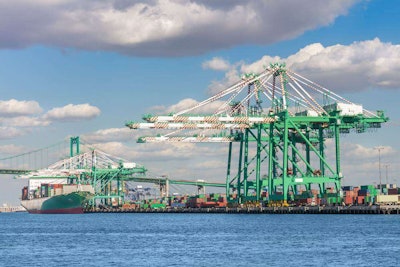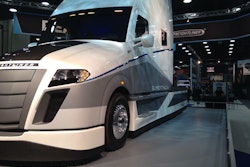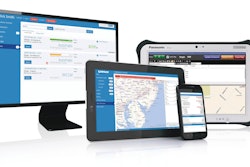 The Port of Los Angeles faced a major cargo backlog earlier this year following months of tense negotiations between port workers and port management companies.
The Port of Los Angeles faced a major cargo backlog earlier this year following months of tense negotiations between port workers and port management companies.California port productivity has not returned to what it was nearly a year ago, but some West Coast ports have announced plans to decrease congestion.
Ken Kellaway, who heads RoadOne Intermodal Logistics, recently told the Agriculture Transportation Coalition a “significant backlog still exists” at Los Angeles and Long Beach. This month, California Association President Dick Coyle noted truck turn-times remain “horrific,” even though the state’s port employers and dockworkers ratified a new contract two months ago.”
“This is the best it’s going to ever be again? “ Coyle asked. “And can we realize that whatever productivity levels were achievable in years past are in the rearview mirror?”
On July 9, the Port of Oakland announced the first of 400 new dockworkers had arrived and would be implanted through September. Port said employers and the longshore union agreed to train and promote an additional 100 current workers.
Oakland’s additional efforts to speed movement include:
- Co-mingling truck chassis in a common pool, to be operational by mid-September.
- Asking the Federal Maritime Commission to allow Saturday operations.
- Opening an off-dock container facility in California’s Central Valley by mid-September, enabling agricultural exporters to pick up empty containers and chassis without driving to Oakland.
- Within 18 months, officials expect to open a new agricultural storage and transloading depot in Oakland to send bulk grain via rail to the port.
Late last month, officials installed Bluetooth sensors along thoroughfares in the Outer Harbor area of the port for a several-month pilot program. These will detect anonymous signals emitted from phones or other mobile devices in trucks to calculate wait times into terminal yards.
Meanwhile, Washington Gov. Jay Inslee signed a $16.2 billion transportation package expected to speed cargo through the ports and freight corridors. It will include funding to complete the key freight routes of State Route 509 in King County and State Route 167 in Pierce County.









